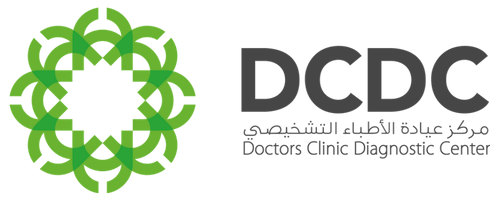In today’s fast-paced world, where time seems to slip through our fingers, prioritizing our health often takes a backseat. However, as the adage goes, “health is wealth,” and ensuring our bodies are in optimal condition is paramount for a fulfilling life. One proactive approach gaining momentum is the practice of full body health checkups. These comprehensive examinations offer a thorough assessment of one’s health status, serving as a cornerstone for preventive healthcare. In this article, we delve into the significance of full body health checkups, exploring their benefits, components, and why they should be an integral part of everyone’s wellness regimen.
Understanding Full Body Health Checkups
A full body health checkup, also known as a comprehensive health assessment or executive health checkup, is a systematic evaluation of various aspects of an individual’s health. Unlike routine doctor visits, which may focus on specific concerns or symptoms, a full body health checkup offers a comprehensive overview of one’s overall health status. It involves a series of tests, screenings, and examinations aimed at detecting potential health issues, often before symptoms manifest.
The Benefits of Full Body Health Checkups
1. Early Detection of Health Issues:
One of the primary benefits of full body health checkups is their ability to detect health problems at an early stage. Many serious illnesses, such as cancer, cardiovascular disease, and diabetes, are more treatable when identified early. By undergoing regular health checkups, individuals increase their chances of detecting and addressing health concerns before they escalate into more significant problems.
2. Preventive Intervention:
Armed with insights from a comprehensive health assessment, individuals can take proactive steps to mitigate health risks. Whether through lifestyle modifications, dietary changes, or targeted medical interventions, preventive measures can significantly reduce the likelihood of developing chronic diseases or complications.
3. Peace of Mind:
Knowing that one’s health is being monitored and evaluated can provide peace of mind. Full body health checkups offer reassurance, allowing individuals to address any health concerns promptly and alleviate anxieties about their well-being.
4. Personalized Health Planning:
Based on the results of a full body health checkup, healthcare providers can develop personalized health plans tailored to the individual’s needs. These plans may include recommendations for diet, exercise, stress management, and preventive screenings, empowering individuals to take control of their health journey.
5. Improved Health Outcomes:
Studies have shown that individuals who undergo regular health checkups tend to experience better health outcomes overall. By staying informed about their health status and engaging in preventive measures, individuals can enjoy a higher quality of life and potentially extend their lifespan.
Components of a Full Body Health Checkup
While the specific components of a full body health checkup may vary depending on factors such as age, gender, and individual health history, several common elements are typically included:
1. Medical History Assessment:
A detailed review of the individual’s medical history, including past illnesses, surgeries, medications, and family medical history, provides valuable context for the health assessment.
2. Physical Examination:
A comprehensive physical examination, conducted by a healthcare provider, evaluates various aspects of the individual’s health, including vital signs, body mass index (BMI), heart and lung function, and neurological status.
3. Laboratory Tests:
Blood tests, urine analysis, and other laboratory investigations are essential components of a full body health checkup. These tests can assess parameters such as cholesterol levels, blood sugar levels, kidney function, liver function, and indicators of inflammation or infection.
4. Imaging Studies:
Depending on individual risk factors and health concerns, imaging studies such as X-rays, ultrasounds, or MRIs may be recommended to evaluate specific organs or systems within the body.
5. Cardiovascular Assessment:
Given the prevalence of heart disease and related conditions, cardiovascular assessments, including electrocardiograms (ECGs) and stress tests, are often included in full body health checkups to evaluate heart health and detect any abnormalities.
6. Cancer Screenings:
Screening tests for various cancers, such as mammograms for breast cancer, Pap smears for cervical cancer, and colonoscopies for colorectal cancer, may be recommended based on age, gender, and individual risk factors.
7. Nutritional Assessment:
Assessing dietary habits and nutritional status is integral to promoting overall health and well-being. Nutritional assessments may include evaluations of dietary intake, body composition, and nutritional deficiencies.
8. Lifestyle Counseling:
Health checkups often incorporate counseling sessions to discuss lifestyle factors such as diet, exercise, smoking cessation, alcohol consumption, stress management, and sleep hygiene. These discussions aim to empower individuals to make healthier choices and reduce modifiable risk factors for disease.
Making Full Body Health Checkups a Priority
Despite the numerous benefits of full body health checkups, many individuals neglect to prioritize their health or perceive health assessments as unnecessary unless they are experiencing symptoms. However, investing in regular health checkups can yield substantial dividends in terms of long-term health and well-being.
To make full body health checkups a priority:
– Educate Yourself:
Understand the importance of preventive healthcare and the role of full body health checkups in maintaining optimal health.
– Schedule Regular Checkups:
Make it a habit to schedule regular health checkups with your healthcare provider, ideally on an annual basis or as recommended based on your age and risk factors.
– Be Proactive:
Take ownership of your health by actively participating in discussions with your healthcare provider, adhering to recommended screenings and tests, and implementing preventive measures.
– Leverage Technology:
Embrace technological advancements in healthcare, such as telemedicine and mobile health apps, to facilitate access to health services and monitor your health remotely.
– Lead by Example:
Encourage family members, friends, and colleagues to prioritize their health and undergo regular health checkups, leading by example and fostering a culture of wellness within your community.
Conclusion
In a world where our health is constantly challenged by various stressors and lifestyle factors, full body health checkups offer a beacon of hope, empowering individuals to take charge of their health and well-being. By investing in regular health assessments, individuals can detect health issues early, implement preventive measures, and ultimately enjoy a higher quality of life. Remember, your health is your most valuable asset—cherish it, nurture it, and prioritize it through regular full body health checkups. Your future self will thank you for it.




